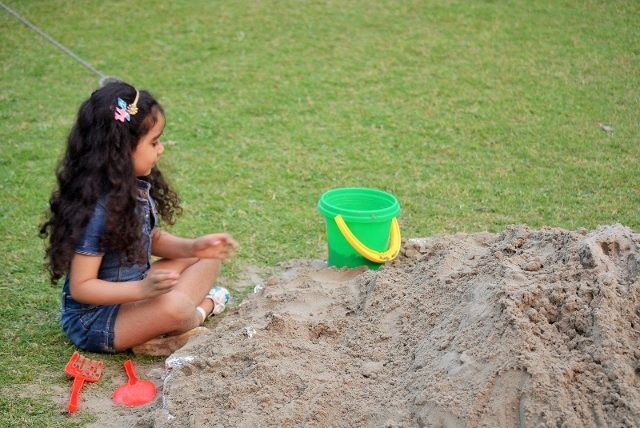
The World Autism Awareness Day will be observed on Sunday with a view to improve awareness about the pervasive disability. Autism was not recognised as a disability in India until last year. On Sunday, almost 19,000 buildings in 142 countries will be lit in blue to spread awareness on the disease.
In major cities like Mumbai, restaurants like Cafe Zoe, Nutcracker, Social, Mockingbird Cafe, China Bistro, Take it easy, Theory, Fountain, Cream Center, Woodside Inn, Flamboyante, Boardwalk in Alibag will put up posters, tent cars, etc to edify the public on the effects of the debilitating disease.
In Delhi, Center for Child and Adolescent Well Being (CCAW) in collaboration with Child Mental Health Foundation (CMHF) will host the the 5th Autism Carnival, 'My Playground', on April 2 in Vasant Kunj. The event will be attended by Mukesh Jain, Joint Secretary & Chief Executive Officer, National Trust of India, Ministry of Social Justice & Empowerment.
"We don't believe in competitions, rather excellence should be the primary factor for driving children towards greater achievements. Activities at Autism Carnival are made of merriment, compassion and appreciation," said Shreya Tandon, a Child Psychologist working with CCAW.
The event will be a platform for children to convert their talents to sustainable and employable skills. In line with the theme of World Autism Awareness Day 2017, "Toward Autonomy and Self-Determination", helping autism-afflicted children to develop employable skills is the best way to help them get forward in life.
The movie, Taare Zameen Par, had been an eye-opener about dyslexia, but representations of autism have so far been bleak in media. Hopefully, that will change soon.
There is a wide range of literature in the West that centres around autistic children. However, in India there aren't too many resources available.
A survey has found that the rate of autism cases in India is high and increasing.
"We found about 1 to 1.5 per cent autistic children between ages two and nine in India," says Dr N.K. Arora, executive director of the International Clinical Epidemiology Network Trust (INCLEN), which led the study. Autism Spectrum Disorder affects one in 68 children globally. In fact, more children will be diagnosed with autism in 2017 than with cancer, diabetes and AIDS combined, according to Autism Speaks.
But the challenge for India now is to conduct official surveys and adopt policies to better understand the disability and ensure employability to those with the disability.
India also needs to work towards busting myths like autistic children will be incapable of learning. For instance, Nayan, 7, from Attingal in Kerala understands around eight languages including Malayalam, English, Tamil, Kannada, Sanskrit and Arabic and is proficient in Mathematics. He uses electronic devices like laptop and tablets. He also came out with a book 'Journey of My Soul' which has 10 poems, 20 short articles and five 'visions' in January 2017. All of this was possible because his parents and therapists gave him proper training.
"With appropriate support, children under Autism Spectrum Disorder can accomplish many regular tasks done by all of us. We need to create greater levels of understanding and an accepting world. The World Autism Awareness Day (WAAD) is a precise expression for inculcating a deep understanding," says Dr Shilpa Gupta, a parenting coach and therapist running the Parental Support Wing of CCAW.
One of the common features of an autistic child will be the difficulty in social interaction.
Indu Chaswal, an expert therapist and parent of child with autism said, "Feel like you are sitting in a chair that has a broken leg, wearing heavily starched clothes and there are loud noises all around you. What if you do not have the words to express your predicament? This, precisely, can be a moment of life for a person with Autism."
Dr. Deepak Gupta, child and adolescent psychiatrist and the founder of CCAW points, "Children with autism may not look at you in the eye, may not listen to what you are saying and may keep on talking without any social relevance. They may flap their hands or twirl their fingers and people around will find this behaviour odd".
Instead of isolating autistic children and making pariahs of them, they should be integrated into the society through proper care and training.

















